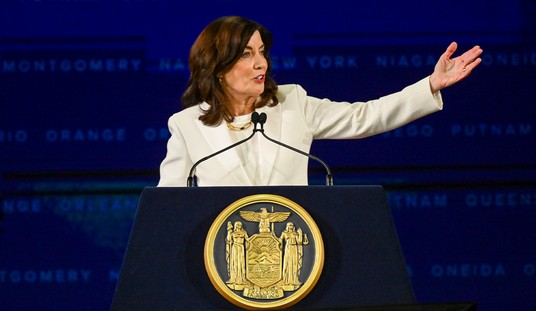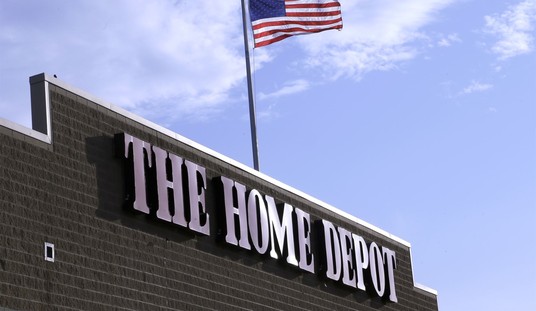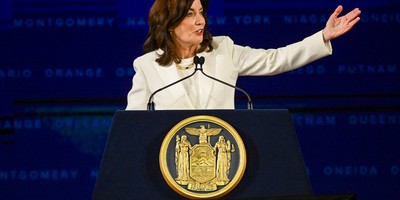Democrats believe they're holding a winning hand over the potential government shutdown, so what incentive do they have to compromise? Harry Reid, obstructionist-in-chief:
Senate Majority Leader Harry Reid has been the most ardent proponent of President Barack Obama taking a hard line with House Republicans in the latest fiscal crisis engulfing Washington. And so far, Reid is getting his way. When the president considered sitting down with the four congressional leaders in the White House ahead of the deadline to avert a government shutdown, Reid privately urged Obama to call off the meeting, according to several people familiar with the situation. Reid believed that it would amount to nothing more than a photo-op that would give the false impression that a serious negotiation was occurring, even warning he wouldn’t attend such a session. Obama scrapped it.
Reid's anti-negotiation calculus is simple, and it underscores my analysis from earlier:
Reid’s strategy boils down to a few factors: If Democrats give even a few small concessions on a short-term stopgap funding measure, Republicans will demand even bigger concessions to avoid a debt default in mid-October. Since Republicans have been engulfed in an intraparty war over how far to take a shutdown threat, Reid and his top lieutenants are convinced that the political backlash from a shutdown would be devastating to the GOP, potentially costing them their majority in the House.
Republicans, meanwhile, have apparently convinced themselves that the chamber that's holding the stalled CR when the music stops will shoulder the blame:
Aides indicated that the House is expected to work late into the night — even early into the morning — to send the Senate yet another proposal that would amend the continuing resolution with some sort of GOP policy priority. Part of the calculus from House leaders seems to be a belief that whichever chamber holds the CR during a shutdown will hold the blame. Indeed, House Republicans hope to frame any shutdown as a matter of Senate inaction. But once the Senate votes again this afternoon, the onus of action will again fall to the House, so sending something back before daylight Tuesday could serve as political cover.
Recommended
This might help GOP messaging at the margins, but I fear they're fooling themselves if they think this strategy will work. During the infamous 1995 showdown, President Clinton vetoed Congress' temporary budgets, precipitating a multi-week shutdown. Yet he who wielded the veto pen did not end up incurring the public's wrath. Democrats have two built-in advantages in these battles: First, the public is (understandably) inclined to assume that the anti-government party is responsible for a shutdown. I'll let Mark Halperin explain the second factor:
So Republicans can try to convince the public to pin blame on Harry Reid -- which he richly deserves -- but it's going to be a steep uphill battle. Another problem Republicans face is dissension within their own ranks. Democrats are operating with lockstep unity, even some of them will take their lumps because of it. Republicans are freelancing. For instance, when Mitch McConnell floated a one-week CR to allow for (non-existent) negotiations to begin/continue, Democrats rejected it out of hand. But so did quite a few Republicans. GOP opponents of the idea want to "hold the line." Democrats? They want this shutdown -- the sooner, the better -- and no, they won't negotiate (see above):
Senate D aide adds: "There isn’t a lot of interest in creating another week to extend negotiations that don't exist."
— Sam Stein (@samsteinhp) September 30, 2013
UPDATE - As expected, the Senate has voted to kill the latest House-passed CR (along strict party lines), volleying the mess back into Boehner's court. Boehner's in a tough spot: He's up against the clock, public opinion, and a sizable chunk of his own caucus.
UPDATE II - Some people are arguing, "Republicans won the sequester fight, why not this one?" That's a fair question. I think the answer is three-fold: (1) Obama overplayed his hand with sequester scare-tactics, and those efforts were undermined because (2) sequestration was his idea in the first place, and (3) Americans didn't really understand what the hell "sequestration" meant. Government shutdown, by contrast, is much more intuitive, making Democrats' messaging a lot easier.

























Join the conversation as a VIP Member